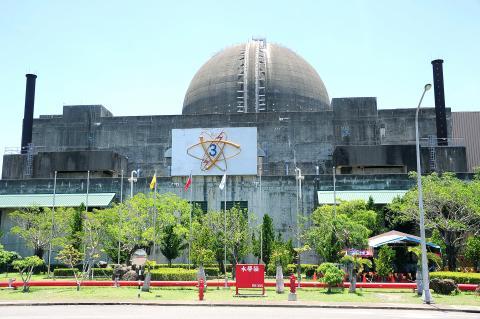Leaders of the Sunflower movement made a tour of Europe from Saturday to Wednesday to talk about the ideals of their movement.
Dennis Wei (魏揚) and Wu Cheng (吳崢), two of the leaders of the Sunflower movement which originated from a coalition of student protesters who took over the Legislative Yuan in Taipei for almost 23 days in March and April, visited the London School of Economics and Political Science on Saturday to give a talk on the economics, history and development of Taiwanese social movements, before meeting with officials from the UK Foreign and Commonwealth Office.
They also visited Brussels and had separate meetings with three European political parties. They also had a separate meeting with the European External Action Service.
Wei and Wu were invited by the Taiwanese Students Association in the United Kingdom (TSAUK), the Formosan Association for Public Affairs in the UK (FAPA UK) and Danish organization Taiwan Corner, the main organizer of the trip.
Taiwan Corner chairman Michael Danielsen said he was very happy to see that political parties in Europe are interested in Taiwan and its social movements.
During an interview in London, Wei said the future of the Sunflower movement lies in keeping people whose paths merged with the movement continually interested with social activism.
The difficulty is that there are many definitions of “the future” held by participants in the movement, Wei said.
The movement must seek to strengthen the concept of “civil disobedience” and move away from keeping the movement within the bounds of “social movements,” Wei said, adding that this was not only the movement’s future, but also the future for all Taiwanese social movements.
Pointing to the Umbrella movement in Hong Kong which is strongly influenced by the Sunflower movement, Wei said that Taiwanese could continue to support the protesters by writing about it.
It is something that everyone can do, as Taiwan shares similar goals with the Hong Kong movement, Wei said.
Conflicts within families are not events particular to the Sunflower movement, but exist in every social movement — it is only that the Sunflower movement’s scale has made these conflicts more severe, Wei said.
It is not necessarily a bad thing, Wei said, adding that he did not feel it was good for individuals who believe in their cause to damage familial relations while trying to persuade others to see things from their point of view.
Wei said the movement is comprised of many different groups, and that future considerations and plans should not be placed under a general label, adding that he is aware that some groups within the organization plan to become politicians.
Wu said many of the younger generation still hope that political parties will eventually come around and match the expectations of the public.
If at some point the existing political parties can no longer be trusted, there will be people willing to implement political reform and take the appropriate action, Wu said.
At the talk in London, a Taiwanese living in the British capital had made sunflower cupcakes using bananas to avoid “misconceptions.”
The misconception refers to Chinese Nationalist Party (KMT) Legislator Chiu Yi (邱毅), who apparently mistook the sunflowers carried by protesters for bananas.

A fugitive in a suspected cosmetic surgery fraud case today returned to Taiwan from Canada, after being wanted for six years. Internet celebrity Su Chen-tuan (蘇陳端), known as Lady Nai Nai (貴婦奈奈), and her former boyfriend, plastic surgeon Paul Huang (黃博健), allegedly defrauded clients and friends of about NT$1 billion (US$30.66 million). Su was put on a wanted list in 2019 when she lived in Toronto, Canada, after failing to respond to subpoenas and arrest warrants from the Taipei District Prosecutors’ Office. Su arrived at Taiwan Taoyuan International Airport at 5am today on an EVA Air flight accompanied by a

An essay competition jointly organized by a local writing society and a publisher affiliated with the Chinese Communist Party (CCP) might have contravened the Act Governing Relations Between the People of the Taiwan Area and the Mainland Area (臺灣地區與大陸地區人民關係條例), the Mainland Affairs Council (MAC) said on Thursday. “In this case, the partner organization is clearly an agency under the CCP’s Fujian Provincial Committee,” MAC Deputy Minister and spokesperson Liang Wen-chieh (梁文傑) said at a news briefing in Taipei. “It also involves bringing Taiwanese students to China with all-expenses-paid arrangements to attend award ceremonies and camps,” Liang said. Those two “characteristics” are typically sufficient

A magnitude 5.9 earthquake that struck about 33km off the coast of Hualien City was the "main shock" in a series of quakes in the area, with aftershocks expected over the next three days, the Central Weather Administration (CWA) said yesterday. Prior to the magnitude 5.9 quake shaking most of Taiwan at 6:53pm yesterday, six other earthquakes stronger than a magnitude of 4, starting with a magnitude 5.5 quake at 6:09pm, occurred in the area. CWA Seismological Center Director Wu Chien-fu (吳健富) confirmed that the quakes were all part of the same series and that the magnitude 5.5 temblor was

Restarting the No. 2 reactor at the Ma-anshan Nuclear Power Plant would take up to 18 months, Minister of Economic Affairs J.W. Kuo (郭智輝) said today. Kuo was answering questions during a meeting of the Legislative Yuan’s Economics Committee, where legislators are considering amendments to the Renewable Energy Development Act (再生能源發展條) amid concerns about the consequences of the Pingtung County reactor’s decommissioning scheduled for May 17. Its decommissioning is to mark the end of Taiwan’s nuclear power production. However, Chinese Nationalist Party (KMT) lawmakers have proposed an amendment to the Nuclear Reactor Facilities Regulation Act (核子反應器設施管制法) that would extend the life of existing